| 08:00 - 10:00 | Pre-Congress Symposium: Trainee Pre-Congress Workshop - Hot Topics for Trainees |
 PC1.1
PC1.1 |
From bench to bedside: The journey of drug development and market access Klemens Budde, Germany |
 PC1.2
PC1.2 |
HLA Basics: Understanding the foundation of transplant immunology Anat R Tambur, United States |
 PC1.3
PC1.3 |
Immunosuppressive agents: Mechanisms of action and clinical applications Manu Varma, United States |
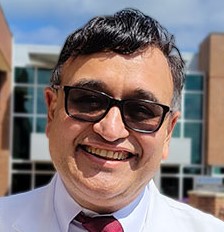 PC1.4
PC1.4 |
The battle within: Navigating acute and chronic rejection in transplantation Rupesh Raina, United States |
 PC1.5
PC1.5 |
Behind the editor's curtain: Secrets to getting published Sharon M. Bartosh, United States |
 PC1.6
PC1.6 |
Transplant troubleshooting: Rapid fire case Discussions / Case 1: "Infection challenges in kidney-pancreas transplant recipients" Carlos C Becerril Romero, United States |
 PC1.7
PC1.7 |
Transplant troubleshooting: Rapid fire case discussions / Case 2: "Pulmonary complications after lung transplantation" Nicolaus Schwerk, Germany |
 PC1.8
PC1.8 |
Transplant troubleshooting: Rapid fire case discussions / Case 3: "Cardiac transplant quandaries: Managing the unexpected" Claire Irving, Australia |
| 08:00 - 09:30 | Pre-Congress Symposium: AHP Pre-Congress Workshop - Professional burnout causes and consequences |
 PC2.1
PC2.1 |
Welcome and Introduction Jenny Pruefe, Germany |

|
Anna Gold, Canada |
 PC2.2
PC2.2 |
Setting the stage – professional burnout (Pre-Recorded presentation) Melissa Cousino, United States |
 PC2.3
PC2.3 |
Professional stressors: a nursing perspective Amelia Marrato, Canada |
 PC2.4
PC2.4 |
Group discussion: experience of stress in workplace /coping strategies Anna Gold, Canada |

|
Jenny Pruefe, Germany |

|
Gillian S Mayersohn, United States |
| 09:50 - 11:00 | Pre-Congress Symposium: AHP Pre-Congress Workshop - Navigating professional stressors and practical applications of positive wellbeing strategies |
| PC2.7 |
Setting up and running reflective case discussion groups Louise Clegg, United Kingdom |
 PC2.8
PC2.8 |
Digital stress at work Seha Saygili, Turkey |
 PC2.9
PC2.9 |
Humour as a coping tool Julia Raecke, Germany |
| 10:15 - 12:15 | Pre-Congress Symposium: Trainee Pre-Congress Workshop - A Primer on AKI |
 PC1.10
PC1.10 |
Post liver transplant renal dysfunction—Evaluation, management and immunosuppressive practice Srinath Chinnakotla, United States |
 PC1.11
PC1.11 |
Trends in pediatric lung transplantation following the height of the COVID-19 pandemic Christian Benden, United States |
 PC1.12
PC1.12 |
Clinical case #1: Clinical Xenotransplantation Tal Eitan, United States |
 PC1.13
PC1.13 |
Clinical Xenotransplantation Case Discussion Jayme E. Locke, United States |
 PC1.14
PC1.14 |
Clinical case #2 Dual Kidney and heart Transplant Brian Madden, United States |
|
Panel Discussion Discussion Period, Germany |
| 13:30 - 14:30 | Plenary Session: Opening Ceremony |

|
Welcome from Congress Chair and President Lars Pape, Germany |

|
Welcome from the Program Chair Priya Verghese, United States |

|
Welcome from Germany’s First Lady Elke Buedenbender, Germany |

|
Welcome from Rudolf Pichlmayr Foundation Eckhard Nagel, Germany |

|
Presentation by Kinderhilfe Organtransplantation Oliver-Kauer Berk, Germany |
| 14:30 - 15:30 | Plenary Session: Saying Yes to Transplant- Navigating difficult cases with scalpels and compassion |
 101.1
101.1 |
Technical limits of transplantation-pushing the boundaries Jean de Ville de Goyet, Italy |
 101.2
101.2 |
Psychosocial barriers- how to manage and overcome Jenny Pruefe, Germany |
| 16:00 - 17:00 | Oral Abstract: Best Kidney Abstracts |
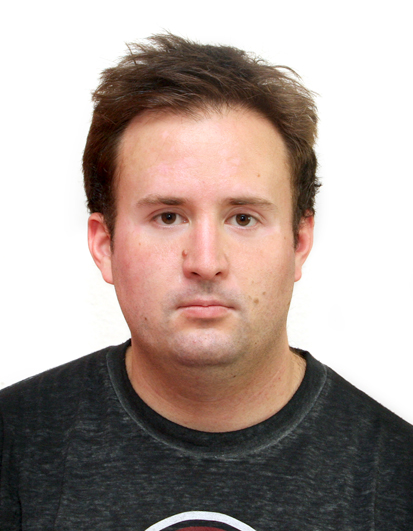 105.1
105.1 |
HLA-DQ: The dominant driver of de novo donor-specific antibody-mediated graft failure in pediatric kidney transplantation Daniel Turudic, Croatia |
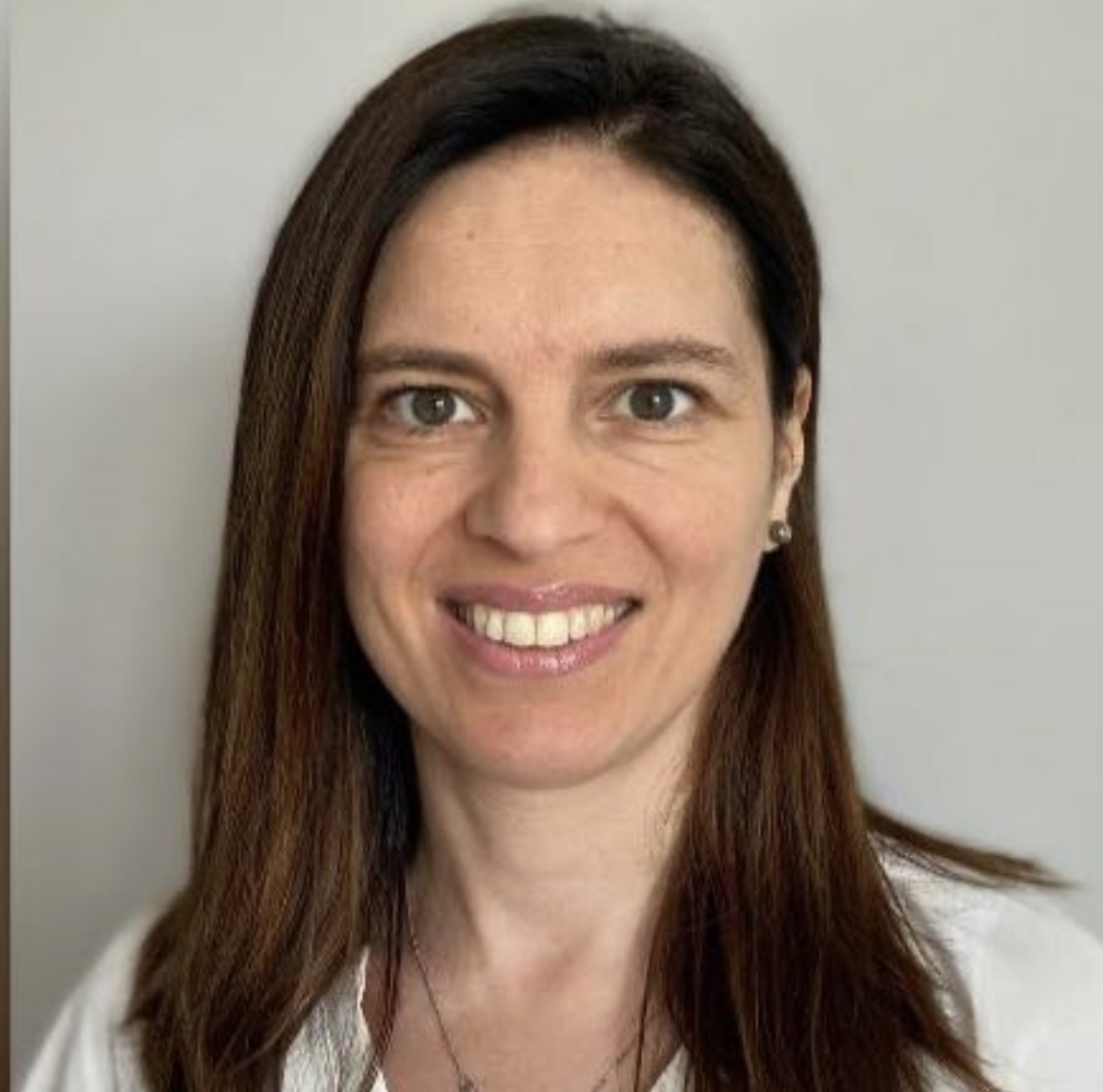 105.2
105.2 |
ABO incompatible LRD kidney transplantation should be offered to children before listing on DD waitlist: results from a 33-year comparative OPTN study Jelena Stojanovic, United Kingdom |
| 105.3 |
Preclinical evaluation of AGT mRNA replacement therapy for primary hyperoxaluria type I disease Taihua Yang, People's Republic of China |
| 105.5 |
Towards biopsy-free monitoring: contrast-enhanced ultrasound perfusion metrics correlate with graft pathology in pediatric kidney transplant recipients Sandra Amaral, United States |
 105.6
105.6 |
Donor derived cell-free DNA is higher in small pediatric transplant recipients receiving kidneys from obese donors Julia Steinke, United States |
| 16:00 - 17:00 | Oral Abstract: Best Liver Abstracts |
| 106.1 |
Normothermic Machine Perfusion of Explanted Human Metabolic Livers: A Proof of Concept for Studying Inborn Errors of Metabolism Riccardo Cirelli, Italy |
| 106.2 |
Is Portable Normothermic Machine Perfusion the Way Forward for Widespread Adoption of Split Livers in the United States? Christine Hwang, United States |
| 106.3 |
Hypothermic Oxygenated Perfusion (HOPE) in Pediatric Liver Transplantation: A Multicenter Study Maria Velayos, Spain |
 106.4
106.4 |
Liver outcomes after isolated heart transplant in patients with FONTAN procedure at two tertiary centers Chaowapong Jarasvaraparn, United States |
| 106.5 |
Outcome of Liver Transplantation in Children with Hepatocellular Carcinoma - An International, TransplantChild ERN Multicenter Retrospective Study Marek Stefanowicz, Poland |
 106.7 (411.1 in journal)
106.7 (411.1 in journal) |
Incidence and high-risk groups of hepatic artery thrombosis and stenosis after pediatric liver transplantation: Preliminary results from a retrospective, observational, multicentric study Weihao Li, Netherlands |
| 16:00 - 17:00 | Oral Abstract: Best Organ Preservation, Surgery and Immunosuppression Abstracts |
| 107.1 |
Updated Approach and Strategies to Kidney Transplantation of Highly Sensitized Pediatric ESRD Patients: A Single-Center Experience Irene Kim, United States |
| 107.2 |
Exploring TIGIT Expression in Pediatric Dialysis Patients with a Stable-like Phenotype and Implications for Belatacept-resistant Rejection Charlotte Duneton, France |
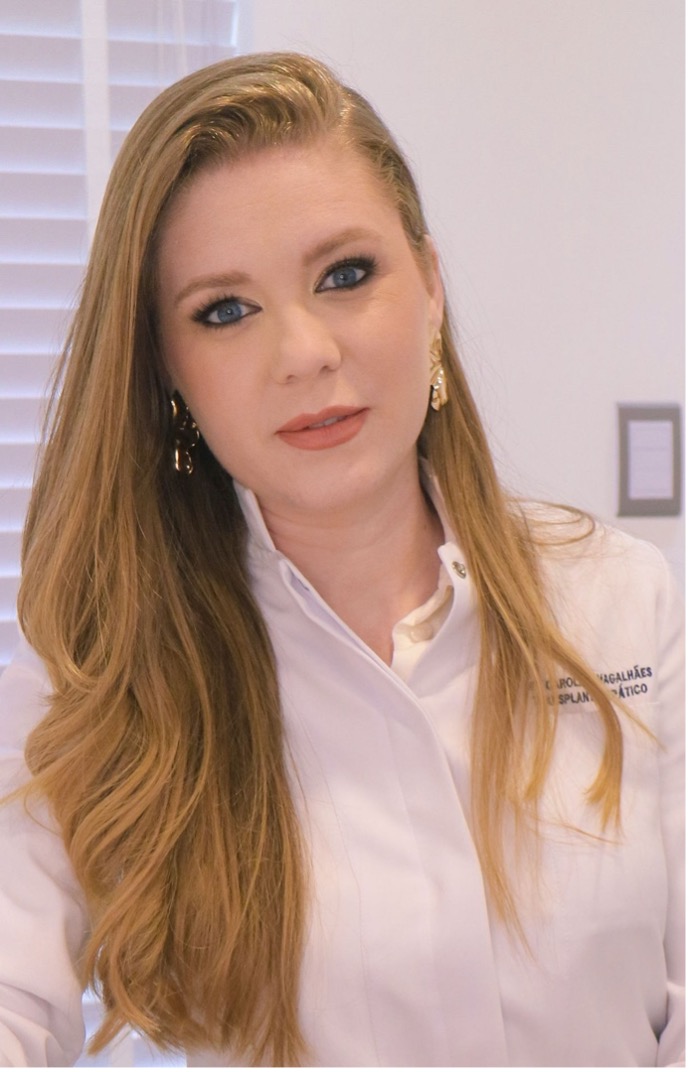 107.3
107.3 |
Basiliximab induction and steroid-free Tacrolimus vs. Tacrolimus-corticosteroid therapy in pediatric liver transplantation: A systematic review and meta-analysis Carolina Magalhães Magalhães Costa, Brazil |
 107.4
107.4 |
Double vs single hepatic artery anastomosis in pediatric left liver grafts: A reassessment of outcomes Carolina Magalhães Magalhães Costa, Brazil |
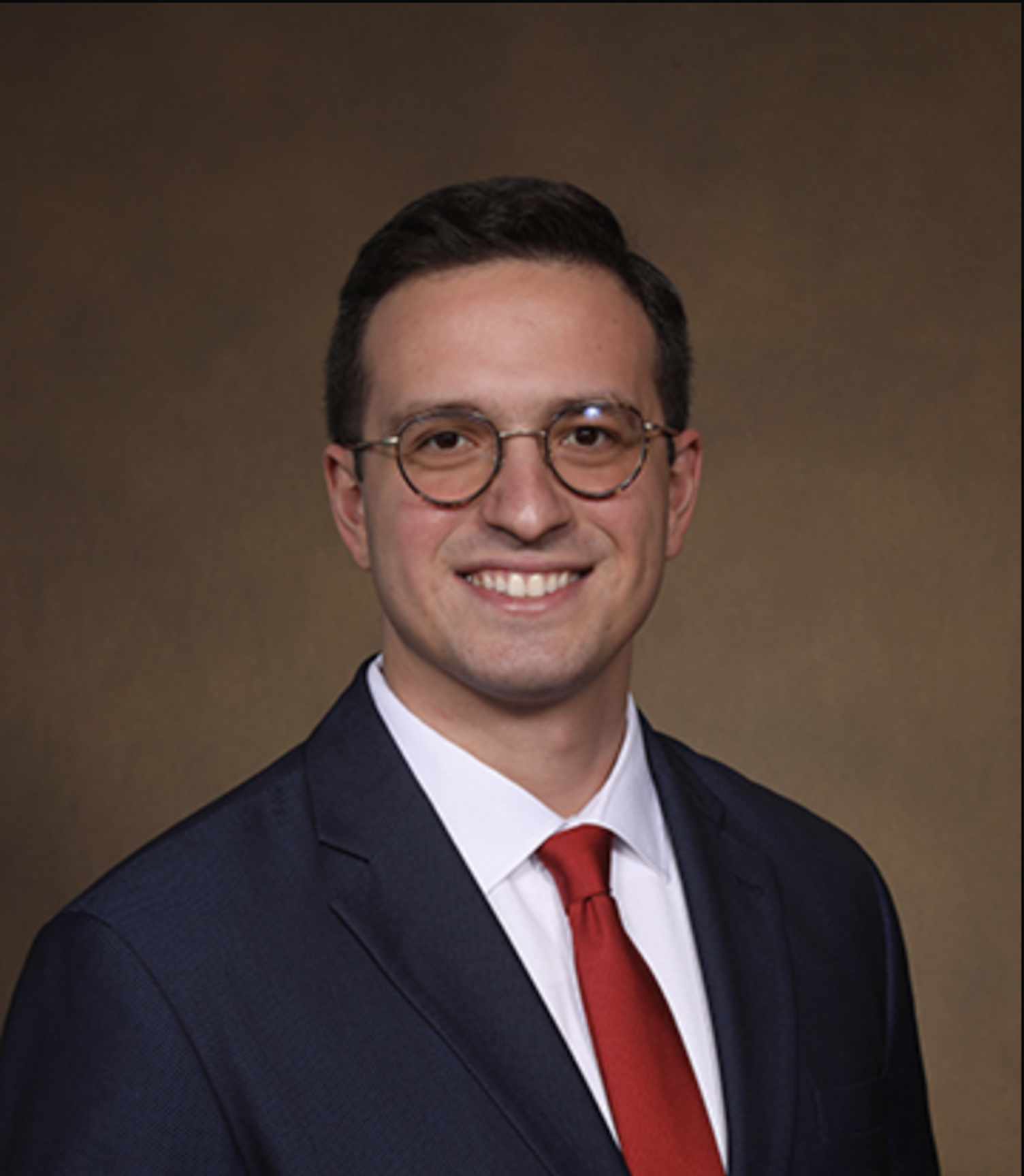 107.5
107.5 |
Use of machine perfusion in pediatric liver transplantation Ioannis A. Ziogas, United States |
| 107.6 |
Pediatric transplantation from donors after circulatory determination of death using normothermic regional perfusion Karla Estefania, Spain |
| 16:00 - 17:00 | Oral Abstract: Best Ethics and Allocation Abstracts |
| 108.1 |
Deceased donor organ allocation policy: An untapped opportunity to reduce the burden of EBV among pediatric kidney transplant recipients Elizabeth M Sonnenberg, United States |
 108.2
108.2 |
Longitudinal European Paediatric Access to Kidney Transplantation (EuPAKT) study with the CERTAIN registry Stephen D Marks, United Kingdom |
| 108.3 |
Organ Specific Considerations Regarding Re-Transplantation after Nonadherence: an IPTA Ethics Committee Analysis Katheryn Gambetta, United States |
| 108.4 |
An Ethical Analysis and Developmental Process to establish an IPTA Position Statement Regarding Mandated Vaccination Prior to Transplantation Mihaela Damian, United States |
| 108.6 |
“Missed Opportunities”: Ethnic Differences in Waiting Times and Outcomes Amongst Adolescents Waitlisted for Kidney Transplantation Tsuyoshi Todo, United States |
| 07:00 - 08:00 | Morning Session: SickKids: Empowering adolescents: Team-based multidisciplinary care |
 200.1
200.1 |
Panelist: Nurse practitioner perspective Amelia Marrato, Canada |
| 200.2 |
Panelist: Dietitian perspective Louise Bannister, Canada |
 200.3
200.3 |
Panelist: Psychologist perspective Anna Gold, Canada |
| 200.4 |
Panelist: Child life specialist perspective Akila Dada, Canada |
| 200.5 |
Panelist: Occupational therapist perspective Alison Schwartz, Canada |
 200.6
200.6 |
Panelist: Physical therapist perspective Robin Deliva, Canada |
| 07:00 - 07:50 | Oral Abstract: Understanding rejection in pediatric kidney transplant |
| 201.1 |
Utility of De Novo Donor-Specific Antibody-Driven Protocol Kidney Biopsy in Pediatric Kidney Transplantaion Alanoud Alshami, Saudi Arabia |
| 201.4 |
Impact of Specific HLA-DR Mismatches on De Novo Donor-Specific Antibody Formation in Pediatric Kidney Transplantation Anika Shah, United States |
| 201.5 |
Use of tissue-based gene expression alongside histology improves clinical decision-making in pediatric kidney transplant recipients Clarkson Crane, United States |
| 07:00 - 07:50 | Oral Abstract: Advances in transplant surgery |
| 202.1 |
Anterior hepatic resection for infant LDLT: Medium-term outcomes Joao Seda Neto, Brazil |
| 202.2 |
Split liver transplantation using machine perfusion in pediatric recipients Amanda R Jensen, United States |
| 202.4 |
Australian experience with APOLT in children with FLF Isabela GG Santos, Australia |
| 08:00 - 09:30 | Plenary Session: Artificial Intelligence (AI) in Health Care: Integration of AI Technologies to Optimize Health Care Processes and Improve Patient Outcomes |
 205.1
205.1 |
EBV infection: The persistent squatter Priya Verghese, United States |
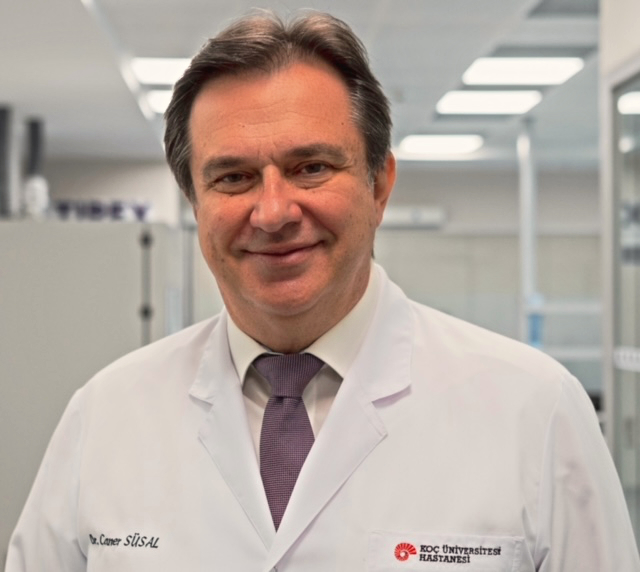 205.2
205.2 |
Data harmonization and their potential applications in organ transplantation Caner Süsal, Turkey |
 205.3
205.3 |
AI in pediatric chronic kidney disease and transplantation Guido Filler, Canada |
| 10:00 - 11:00 | Mini-Oral Abstract: Specific issues in pediatric kidney transplantation |
| 210.1 |
Relationship Between AASI, Hypertension, and Left Ventricular Hypertrophy in Pediatric Kidney Transplant Patients Abanti Chaudhuri, United States |
| 210.2 |
Impact of vesicoureteral reflux post pediatric kidney transplant: A pediatric nephrology research consortium study Namrata G Jain, United States |
| 210.4 |
Urine-Derived Stem Cells from Kidney Transplant Recipients as a DNA Source for Genetic Testing of Suspected Inherited Kidney Diseases in Pediatric Donors Longshan Liu, People's Republic of China |
| 210.5 |
European multi-center trial with imlifidase prior to kidney transplant in highly sensitized children Gema Ariceta, Spain |
 210.6
210.6 |
Kidney-alone transplantation while on siRNA therapy for Primary Hyperoxaluria type 1 Atessa Bahadori, Canada |
| 210.7 |
Successful early pre-emptive renal transplantation in infants with Congenital Nephrotic Syndrome of the Finnish type Saruul Yu, People's Republic of China |
| 210.8 |
Effects of the kidney allocation system changes in 2014, on the outcomes of kidney transplants in pediatric patients: a retrospective analysis Reza Saidi, United States |
| 10:00 - 11:00 | Mini-Oral Abstract: Adventures with immunosuppression |
 211.1
211.1 |
Unraveling interindividual differences and functional consequences of gut microbial metabolism of immunosuppressants Burkhard Toenshoff, Germany |
| 211.3 |
Effects of calcineurin inhibitors on renal function in paediatric liver transplant recipients at a tertiary academic hospital Karabo Lesley K L Leotlela, South Africa |
| 211.6 |
Immunosuppressant withdrawal and characteristics of regulatory T cells in allograft histology among pediatric liver transplantation recipients Kai Wang, People's Republic of China |
| 211.7 |
Alternative, Low-Cost Monitoring of CD3 cell depletion following Anti-Thymocyte Globulin Induction in Pediatric Renal Transplant Recipients Abanti Chaudhuri, United States |
| 10:00 - 11:00 | Mini-Oral Abstract: Supporting children through their transplant journey |
| 212.1 |
Readability of Patient and Parent Education Materials in Solid Organ Transplant Clinic - A Single Center Study Shaan J Thomas, United States |
| 212.2 |
Virtual reality and gameplay as a model for exercise rehabilitation in pediatric solid organ transplant patients. A patient and family led initative Astrid De Souza, Canada |
| 212.6 |
Helping teens cope: A virtual interprofessional coronary angiogram information session Lauren Scavuzzo, Canada |
 212.7
212.7 |
Young people’s perspectives of sources of support on their transplant journey Caroline Piotrowski, Canada |
| 212.8 |
Prevalence of household food insecurity and financial challenges amongst caregivers of paediatric chronic kidney disease, dialysis, and kidney transplant patients Yasmeen Mansoor, Canada |
| 10:00 - 11:00 | Mini-Oral Abstract: Surgery - novel techniques and outcomes |
| 213.1 |
LiverWeughtGraft-CT (LWG): an experimental model for real-time assesment of weight and volume of whole and split liver grafts for transplantation. Davide Cussa, Italy |
 213.2
213.2 |
First single-center experience of minimally invasive pediatric living donor liver transplantation in China Guang-Peng Zhou, People's Republic of China |
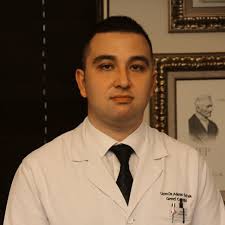 213.3
213.3 |
A simple and effective approach to prevent bile leakage in biliary reconstruction: Use of a Double J catheter Adem Safak, Turkey |
| 213.4 |
Early australian experience with APOLT in children with metabolic liver disease Isabela GG Santos, Australia |
| 213.5 |
Risk factor analysis for late portal vein thrombosis in pediatric patients under 10 kilograms following living donor liver transplantation Nathália Porto Rangel Travassos, Brazil |
| 213.6 |
Liver Transplantation for Pediatric Metabolic Diseases: A 15-year review of living vs deceased donor transplants at an international transplant center (2010-2025) Annadiletta Donà, Italy |
| 213.7 |
Monosegmental and hyperreduced split grafts to overcome large-for-size scenarios in pediatric liver transplants Isabel González-Barba Neira, Spain |
| 213.8 |
Surgical outcomes of liver transplantation in pediatric organic acidemias Alessandra Rancan, France |
| 11:05 - 12:05 | Workshop: Histocompatibility |
 215.1
215.1 |
New Insights into HLA-DQ immunogenicity Anat R Tambur, United States |
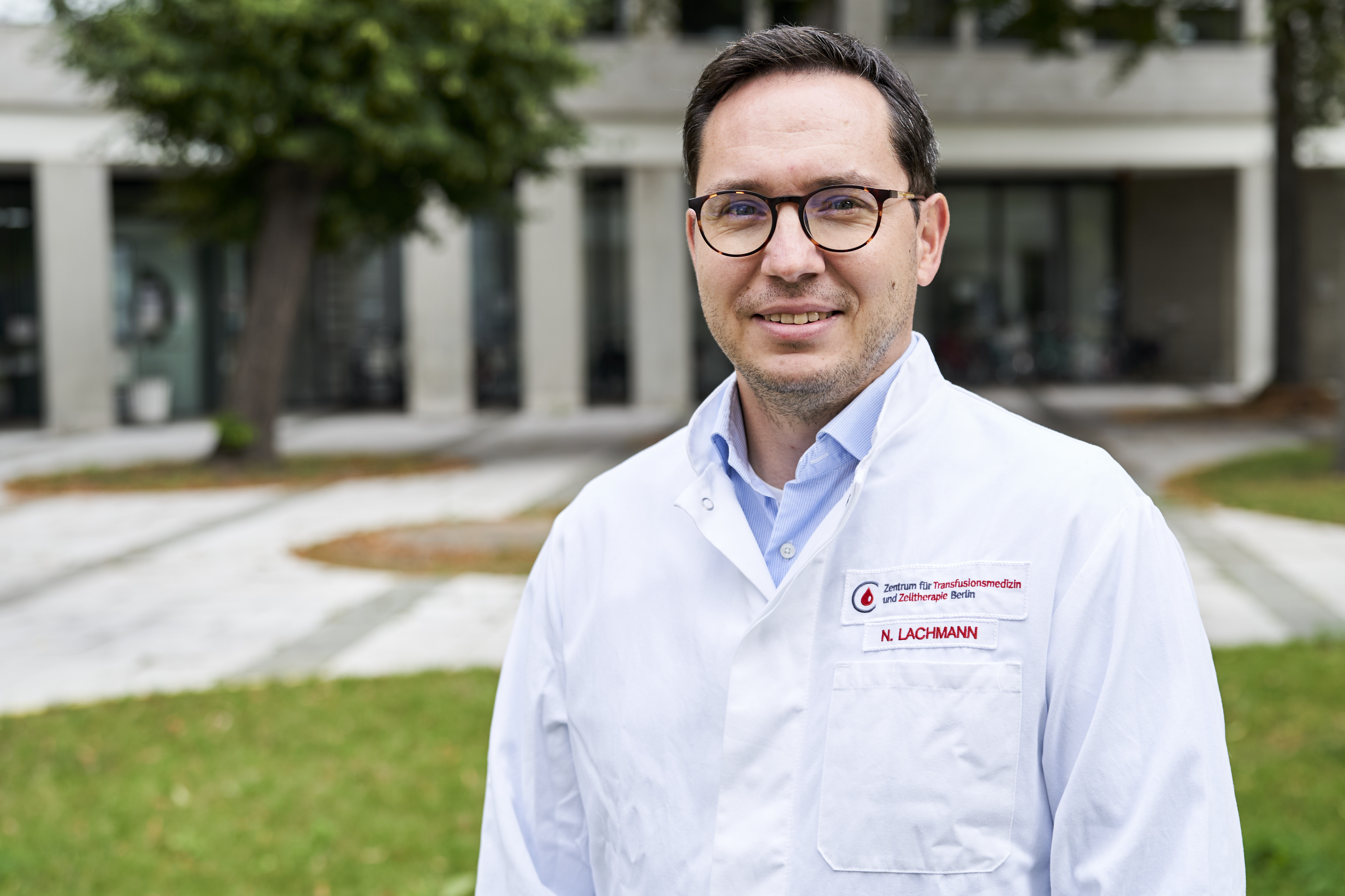 215.2
215.2 |
How to use virtual crossmatching Nils Lachmann, Germany |
 215.3
215.3 |
Tailoring HLA antibody monitoring post transplantation Burkhard Toenshoff, Germany |
| 11:05 - 12:05 | Workshop: IPTA-SPLIT: Cardiac liver disease |
 216.1
216.1 |
Congestive hepatopathy: Risks, surveillance and management Chaowapong Jarasvaraparn, United States |
 216.2
216.2 |
Liver biopsy is key: The importance of a liver biopsy for disease management and long-term predictions Alyssa Kriegermeier, United States |
 216.3
216.3 |
Liver biopsy is too risky without reward: Alternative ways to monitor congestive hepatopathy and why liver biopsy is not needed Elizabeth Rand, United States |
 216.4
216.4 |
Pro liver biopsy response Alyssa Kriegermeier, United States |
 216.5
216.5 |
Con liver biopsy response Elizabeth Rand, United States |
|
Questions from Audience Discussion Period, Germany |
| 11:05 - 12:05 | Workshop: Trauma informed care in pediatric solid organ transplant: Learning and growing |
| 217.1 |
Creating Trauma Informed Pathways Louise Clegg, United Kingdom |
 217.2
217.2 |
Post traumatic growth Gillian S Mayersohn, United States |
|
Panel Discussion Discussion Period, Germany |
| 11:05 - 12:05 | Workshop: Breaking down barriers to transplant in low resource settings |
 218.1
218.1 |
Transplant without borders: IPTA guidance on developing pediatric SOT programs in low and middle income countries Hanh D Vo, United States |
 218.2
218.2 |
Tale of 2 cities: Public-private disparity in transplant access Priya Walabh, South Africa |
 218.3
218.3 |
Ties that bind: IPTA Outreach partnerships (co-presenting) Olivia Boyer, France |
| 218.4 |
Panel discussion on the challenges of access to transplant and innovative solutions: Africa perspective Mignon McCulloch, South Africa |
 218.5
218.5 |
Panel discussion on the challenges of access to transplant and innovative solutions: IPTA perspective Katherine E. Twombley, United States |
 218.6
218.6 |
Panel discussion on the challenges of access to transplant and innovative solutions: South Asian perspective Vindya N Gunasekara Sr., Sri Lanka |
 218.7
218.7 |
Panel discussion on the challenges of access to transplant and innovative solutions: Baltic perspective Benas Prusinskas, Lithuania |
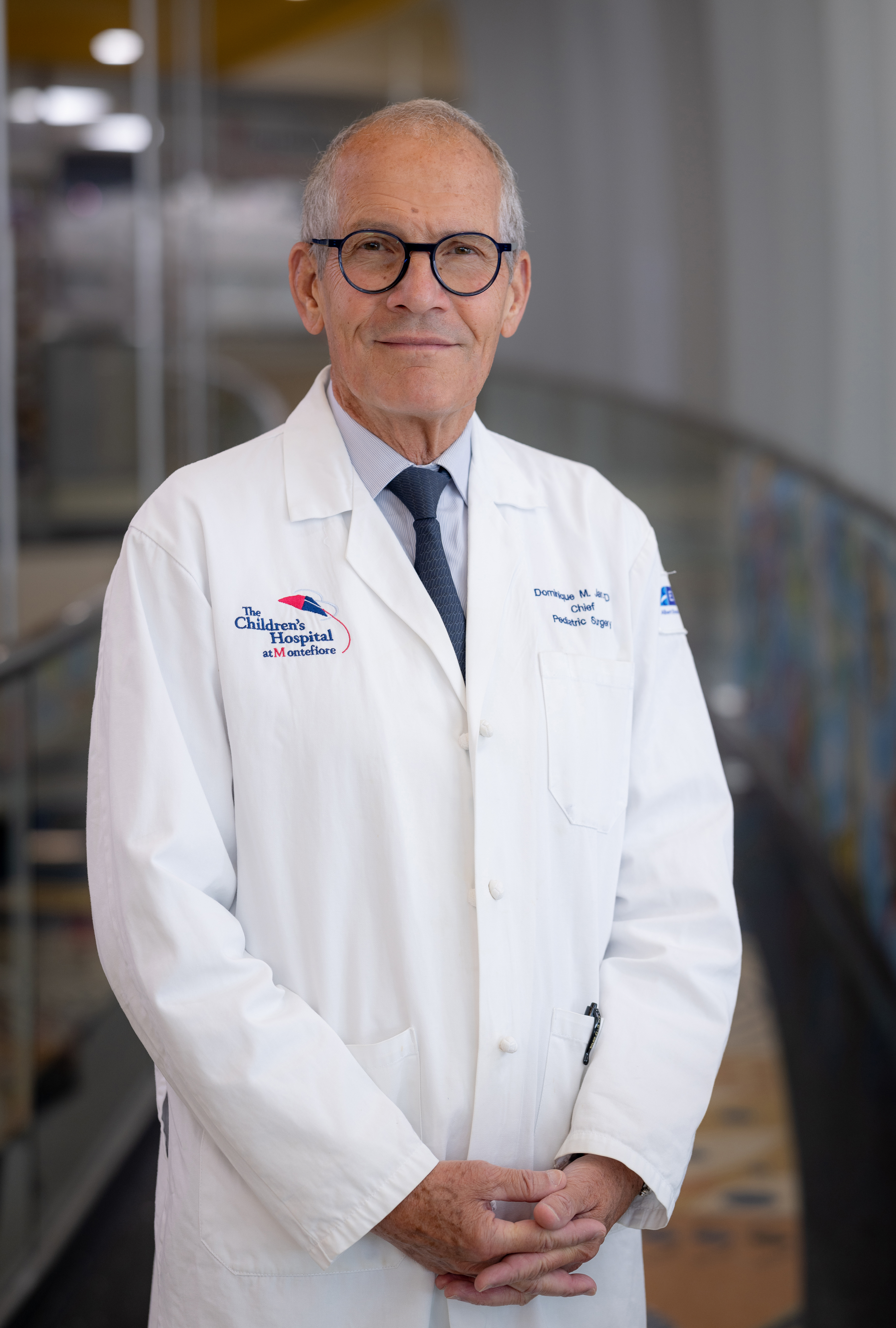 218.8
218.8 |
Panel discussion on the challenges of access to transplant and innovative solutions: Surgeon perspective Dominique M. Jan, United States |
| 12:20 - 13:20 | Industry Symposium: Kidney injury perspectives for heart, kidney and liver transplant: Cases using NGAL |

|
Jun Oh, Germany |
|
Q&A with the audience Discussion Period, Germany |
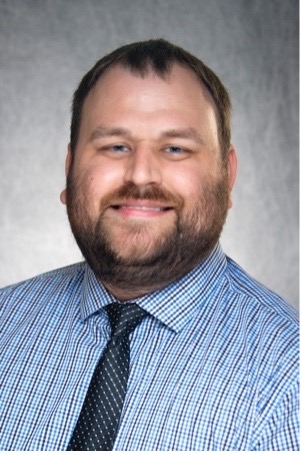
|
Kyle A Merrill, United States |
| 13:35 - 15:05 | Oral Abstract: Improving survival following pediatric kidney transplant |
| 225.1 |
Successful use of daratumumab (Anti-CD38) for the treatment of pediatric post-transplant proteinuric diseases: A case series Dechu Puliyanda, United States |
| 225.2 |
Tolerating Unfavorable Donor Criteria in Pediatric Kidney Transplantation: A Retrospective UNOS Analysis Zachary Oatley, United States |
 225.3
225.3 |
Low-Density Lipoprotein Apheresis for Recurrent Nephrotic Syndrome in Pediatric Kidney Recipients: A Systematic Review and Meta-Analysis Priya Verghese, United States |
| 225.5 |
Risk stratification of chronic kidney allograft failure in donor-recipient (D-R) pairs Agnieszka Swiatecka-Urban, United States |
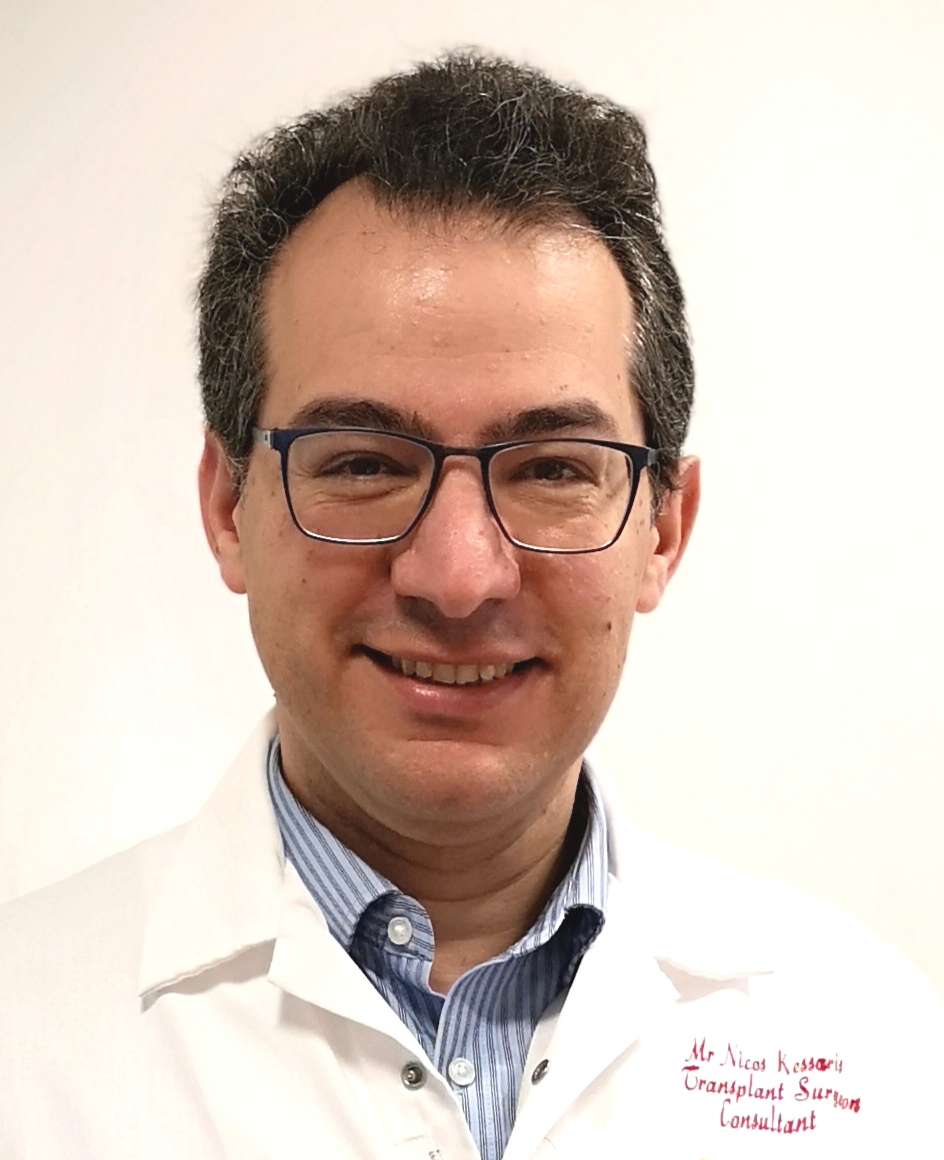 225.7
225.7 |
Long-term Outcomes of Paediatric Kidney Transplants from DCD donors are comparable to those from DBD donors: a 33-year Comparative OPTN study Nicos Kessaris, United Kingdom |
 225.8
225.8 |
Long-term outcomes of right versus left kidney transplants over a 33-year period in the USA – a comparative study Nicos Kessaris, United Kingdom |
| 225.9 |
Impaired renal function at 1-year after for-cause biopsy affected long-term graft survival in pediatric kidney transplant recipients Longshan Liu, People's Republic of China |
| 13:35 - 15:05 | Oral Abstract: Indications for pediatric liver transplantation |
| 226.1 |
Proactive living donor liver transplant is associated with improved graft- and patient-survival outcomes in children with Biliary Atresia Marshall W Wallace, United States |
| 226.2 |
Facing the issue of acute-on-chronic liver failure in pediatric biliary atresia: a prognostic and therapeutic challenge Maria Julia Minetto, Argentina |
| 226.3 |
Living donor plus domino liver transplantation for MSUD: expanding donor pool safely Joao Seda Neto, Brazil |
| 226.4 |
Liver transplant for the treatment of hepatocellular carcinoma in children exceeding milan criteria Alberto M Fratti, Italy |
| 226.5 |
Excellent outcomes with high-risk pediatric hepatoblastoma: a detailed analysis of a large, single center experience Douglas G. Farmer, United States |
| 226.8 |
Mid- and long-term evolution after liver +/- kidney transplantation for methylmalonic acidemia Claire Mayer, France |
| 13:35 - 15:05 | Oral Abstract: Everyday challenges in psychosocial assessment and care |
| 228.1 |
Thriving through adversity: Post-traumatic growth among caregivers one month after solid organ transplant Debra Lefkowitz, United States |
| 228.2 |
Sun safety knowledge and practice after pediatric solid organ transplantation: an Interdisciplinary approach Michael JG Somers, United States |
| 228.3 |
“Behind every scar there is an untold story of survival” giving voice to untold stories from parental live liver donors and adolescent recipients Annette Nasr, United States |
 228.5
228.5 |
Effectively engaging high school students about organ donation and transplantation: An update on the high school outreach initiative experience Kate Rokoss, Canada |
| 228.6 |
Substance use patterns in pediatric solid organ transplant candidates: impact after transplant Daniel S Thomson, United States |
| 228.7 |
Sexual and reproductive health knowledge in post-transplant adolescents and young adults Kaushalendra Amatya, United States |
 228.8
228.8 |
Evaluating patterns of social media use in children living with a solid organ transplant and their families Tom Blydt-Hansen, Canada |
| 228.9 |
Delirium risk screening, occurrence, and associated psychosocial and psychiatric risk factors in a large cardiopulmonary pre-transplant population Chase Samsel, United States |
| 13:35 - 15:05 | Oral Abstract: Breakthroughs not outbreaks - ID and PTLD |
| 227.2 |
Multicenter Prospective Cohort Study of CMV T cell Immunity and First post-transplant CMV DNAemia in Pediatric Solid Organ Transplant Recipients Daniel Dulek, United States |
| 227.3 |
Complete withdrawal of immunosuppression and long-term graft function in pediatric liver recipients who developed PTLD or EBV infection Dorota Broniszczak-Czyszek, Poland |
| 227.5 |
Pretransplant BK Virus Immunity in Pediatric Kidney Transplantation: Predictive Markers and Role of IVIg Prophylaxis Charlotte Duneton, France |
| 227.6 |
Surveillance of Post-Transplant Lymphoproliferative Disorder in Pediatric Solid Organ Transplant Recipients Sonya R Kowalczyk, United States |
| 227.7 |
Adoptive cell therapy based on CD45RO+/RA- memory lymphocites infusions to treat BK virus-associated nefropathy in kidney transplant patients. Alejandro Zarauza Santoveña, Spain |
| 15:10 - 16:10 | Workshop: Hot topics in pediatric liver transplantation |
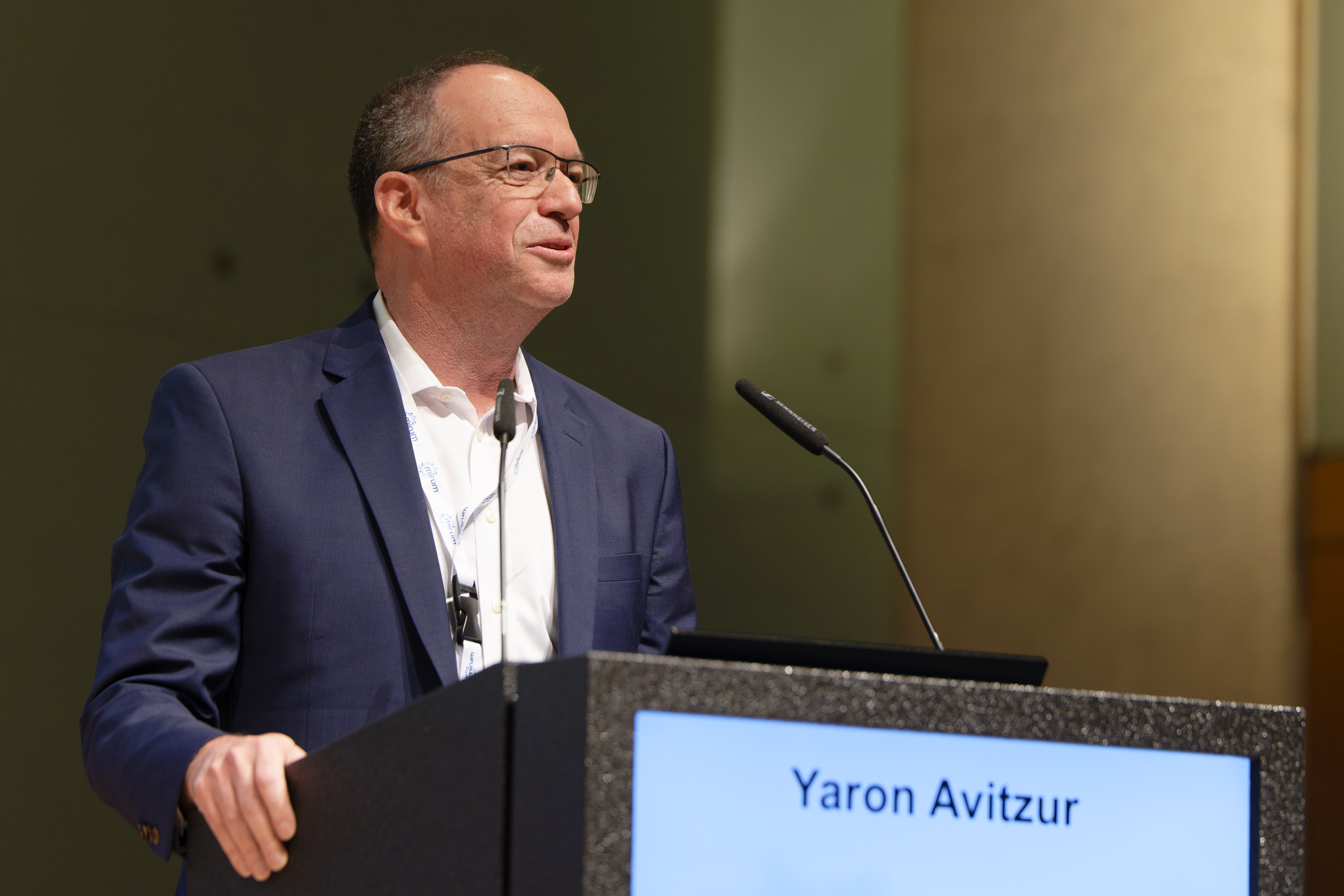 231.1
231.1 |
Atopy and allergy after paediatric liver transplant Yaron Avitzur, Canada |
 231.2
231.2 |
Where are we at with gene therapy for inherited metabolic diseases? Jun Oh, Germany |
 231.3
231.3 |
Stollery children’s-fatigue and sarcopenia interventions in pediatric liver transplants (pre-recorded presentation) Diana Mager, Canada |
| 15:10 - 16:10 | Workshop: New horizons in theranostics for pediatric solid organ transplant |
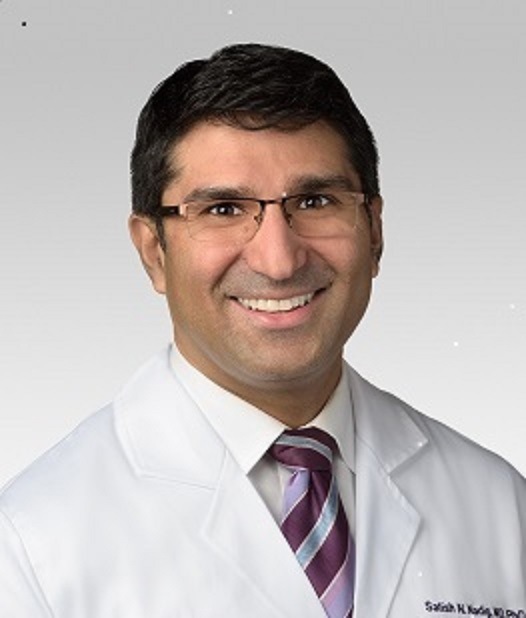 233.1
233.1 |
Targeted nanotherapeutics in pediatric transplantation Satish N. Nadig, United States |
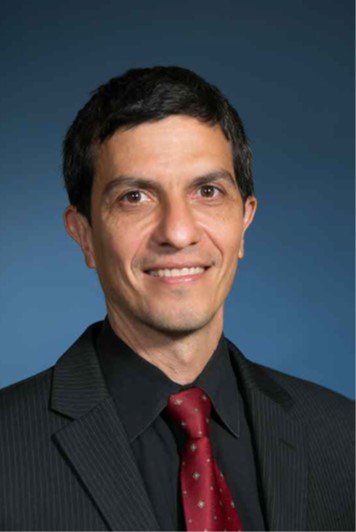 233.2
233.2 |
Novel insights and therapeutic applications of normothermic perfusion in pediatric transplant Paulo Martins, United States |
| 233.3 |
Organ transplant tolerance in children Stephen Alexander, Australia |
| 15:10 - 16:10 | Workshop: IPTA-AST: Dealing with Dilemmas: Challenging Cases in Pediatric Transplantation |
 232.1
232.1 |
Challenging dermatologic cases Katherine E. Twombley, United States |
| 232.2 |
Challenges HLA cases Roshan George, United States |
 232.3
232.3 |
Challenging abdominal surgical cases Juan Carlos Caicedo-Ramirez, United States |
| 16:40 - 17:10 | SOTA: Immunomonitoring to predicting infections in solid organ transplant recipients |
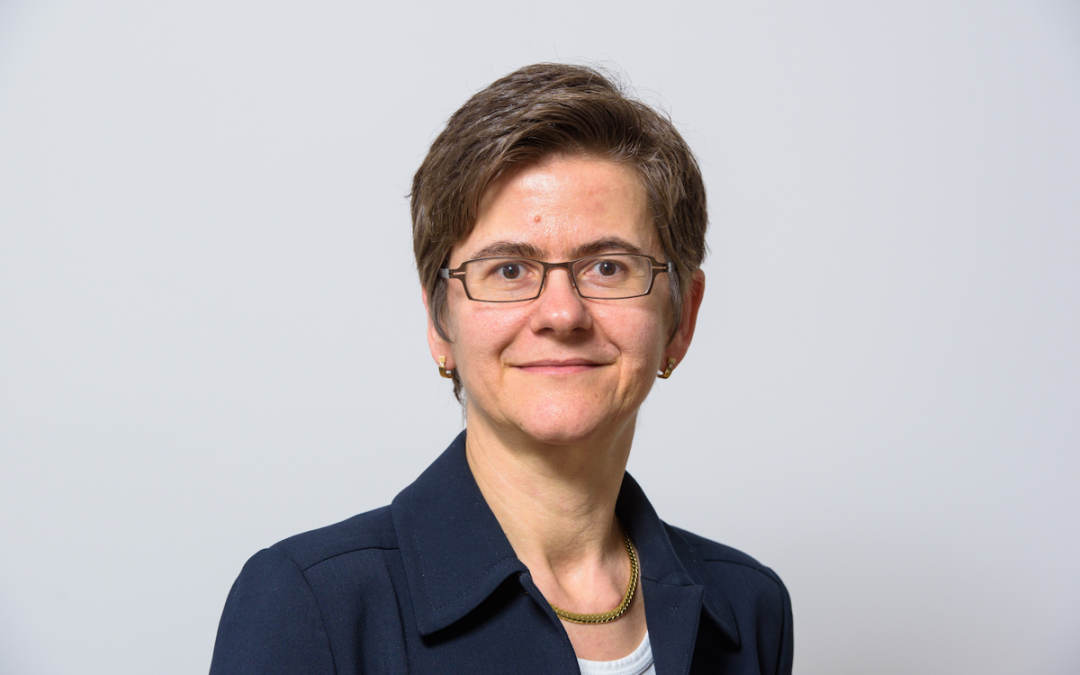 235.1
235.1 |
Immunomonitoring to predict infection in SOT recipients Martina Sester, Germany |
| 08:00 - 09:30 | Plenary Session: Novel Immune Monitoring to Define Net Immunity Following Solid Organ Transplant |
 300.1
300.1 |
Immune signatures and the Interface of the microbiome following liver transplant Imeke Goldschmidt, Germany |
 300.2
300.2 |
Novel Biomarkers John J. Friedewald, United States |
 300.3
300.3 |
Using TorqueTenoVirus DNA and adenovirus-specific T cells for immune monitoring following renal transplant in children Thurid Ahlenstiel-Grunow, Germany |
| 10:00 - 11:00 | Mini-Oral Abstract: Optimizing outcomes after pediatric kidney transplantation |
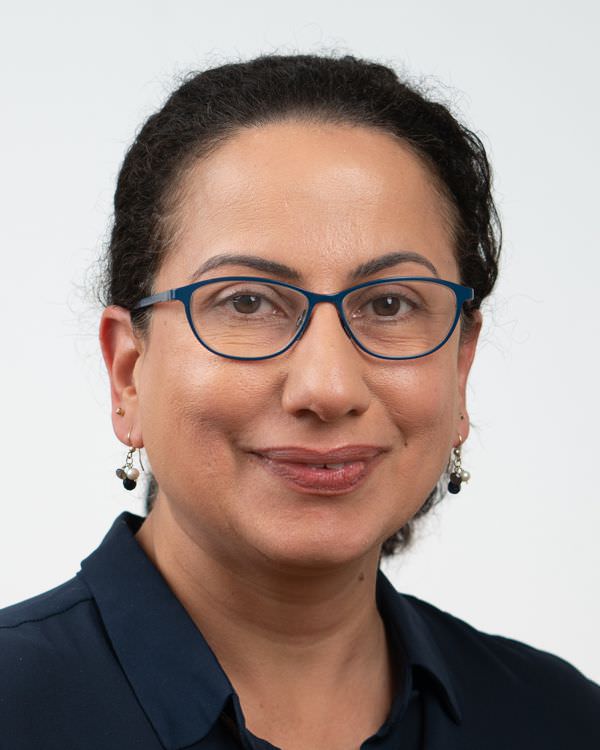 305.1
305.1 |
Cardiovascular disease (CVD) outcome after kidney transplantation Rukshana Shroff, United Kingdom |
 305.2
305.2 |
Donor-derived cell-free DNA (dd-cfDNA) as a non-invasive biomarker of kidney allograft rejection in pediatric kidney transplantation Julien Hogan, France |
 305.3
305.3 |
Association between donor derived cell free DNA, donor specific antibody, and rejection in pediatric kidney transplant recipients Julia Steinke, United States |
| 305.4 |
Donor-derived cell-free DNA elevations with acute rejection types in a multicenter NAPRTCS registry cohort of children with kidney transplants Olga Charnaya, United States |
| 305.5 |
Systematic review on the use of donor-derived cell-free deoxyribonucleic acid (ddcfDNA) for diagnosing rejection in paediatric solid organ transplant recipients Maya Banerjee, United Kingdom |
| 305.6 |
Alemtuzumab induction via intravenous vs. subcutaneous administration in pediatric kidney transplantation Helen Pizzo, United States |
| 305.7 |
Assessment of DSA by serial titration associates with acute rejection severity in pediatric kidney transplant recipients Clarkson Crane, United States |
| 305.8 |
The impact of living donor age and sex on pediatric kidney transplant outcomes Stella Kilduff, United States |
| 10:00 - 11:00 | Mini-Oral Abstract: Infections and vaccines |
| 306.1 |
Clinical Outcomes of Switching from Tacrolimus to Cyclosporine A in Pediatric Kidney Transplant Recipients with BK Virus Infection Jianming Li, People's Republic of China |
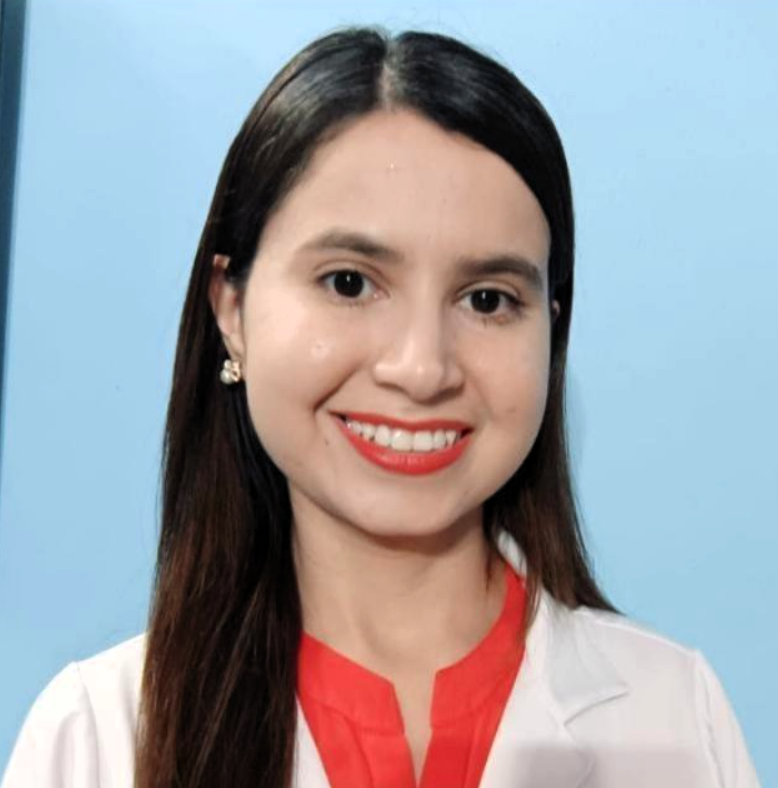 306.2
306.2 |
Lymphoproliferative Disease in kidney transplanted children: A single center experience from Argentina Gabriela Gutièrrez, Paraguay |
 306.3
306.3 |
Faecal microbiota transplantation for recurrent Clostridium difficile infection in paediatric kidney transplantation Stephen D Marks, United Kingdom |
| 306.4 |
Impact of pre-transplant anti-CD20 antibody administration on post-transplant EBV infection after pediatric liver transplantation Koushin Kuroki, Japan |
| 306.5 |
Incidence of EBV DNAemia among pediatric kidney transplant recipients in the COVID era JoAnn M Morey, United States |
| 306.7 |
Strategies for improving influenza vaccination rates in pediatric transplant recipients Lindsey B Shinn, United States |
 306.8
306.8 |
A Colchicine-resistant FMF pediatric patient successfully treated with IL-1 antagonists after kidney transplantation Esra Baskin, Turkey |
| 10:00 - 11:00 | Mini-Oral Abstract: Liver transplantation |
| 307.3 |
Activated CD8+ pediatric acute liver failure from a transplantology point of view: series of cases Ivone Malla, Argentina |
 307.4
307.4 |
The potential etiology of indeterminate pediatric acute liver failure Wan-Ting Zhang, People's Republic of China |
| 307.5 |
ABO-incompatible liver transplantation in children aged between 0 and 2 years: No desensitization protocol needed Kejd Bici, Italy |
| 307.6 |
Liver transplantation in metabolic diseases: a 17-years single center experience Silvio Veraldi, Italy |
| 307.7 |
Graft and overall survival in patients with portal vein stenosis after pediatric liver transplantation; results from the multicenter multinational PORTAL registry Lydia Sieben, Netherlands |
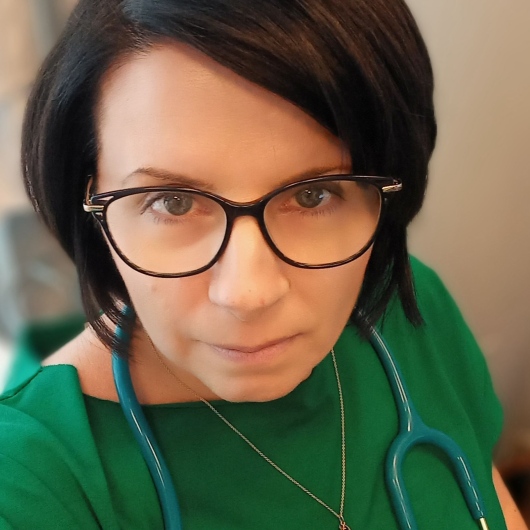 307.8
307.8 |
Analysis of outcome of liver transplantation in children born prematurely Julita Latka-Grot, Poland |
| 307.9 (P2.52 in Journal) |
Prognosis Factors and Surgical Management of Biliary Complications after Pediatric Liver Transplantation in la Fundacion Cardioinfantil-laCardio, a specialized, high-complexity center in Bogotá, Colombia Jairo Rivera-Baquero, Colombia |
| 307.10 (P1.50 in Journal) |
Pediatric ACLF, Optimizing Outcomes Through Timely Living Donor Liver Transplantation Saeed Akhter, Pakistan |
| 10:00 - 11:00 | Mini-Oral Abstract: Special topics in transplantation |

|
Diagnosis and management of posterior reversible encephalopathy syndrome in pediatric transplant patients Esra Baskin, Turkey |
| 308.1 |
Myocarditis in the CICU Csaba Vilmányi, Hungary |
| 308.2 |
Donor derived cell-free DNA is elevated during rejection across all ages in pediatric heart transplant recipients Kris Oreschak, United States |
| 308.3 |
Impact of Genetic Variations on Outcomes in Pediatric Transplant-Associated Thrombotic Microangiopathy Treated with Eculizumab Heeyeon Cho, Korea |
 308.4
308.4 |
Kidney outcomes after hematopoietic cell transplantation in children and young adults with sickle cell disease Rima S. Zahr DO, MS, United States |
 308.6
308.6 |
Self-selected transition goals: A tool for adolescent heart transplant recipients in preparation for transition to adult care Amelia Marrato, Canada |
| 308.7 |
25 Years of Pediatric Transplantation in an Adult Setting: Challenges, Goals, and Critical Issues Davide Cussa, Italy |
| 308.8 |
Still Left Behind – Kidney Transplant Outcomes in Adolescents and Young Adults Margret Bock, United States |
| 11:05 - 12:05 | Workshop: Tips for early career professionals |
| 310.1 |
Writing, Responding, Revising, and Reviewing: Tips from an Editor-in-Chief Sandy Feng, United States |
 310.2
310.2 |
Claiming space and making space- How transplant professionals can navigate imposterism, belonging and becoming our best Aviva Goldberg, Canada |

|
Gabriela Gutièrrez, Paraguay |
| Henny A Puspitasari, Indonesia |
| Kinnari Vala, India |
|
Panel discussion Discussion Period, Germany |
| 11:05 - 12:05 | Workshop: IPTA-ASTS: Building bridges: Innovation-learning from each other |
 311.1
311.1 |
Combined liver pancreas transplant for pancreatic neuroendocrine tumor with non resectable metastasis to liver Srinath Chinnakotla, United States |
 311.2
311.2 |
Splitting a liver on normothermic machine perfusion device Satish N. Nadig, United States |
 311.3
311.3 |
Robotic donor hepatectomy and liver transplant in children Rajesh Rajalingam, India |
| 11:05 - 12:05 | Workshop: IPTA-CST: The Canadian Perspective on Exercise Rehabilitation in Solid Organ Transplant |
 312.1
312.1 |
The evolution of CAN-RESTORE Tania Januadis-Ferreira, Canada |
| 312.2 |
Approaches and innovative strategies to engage adolescents in physical activity Astrid De Souza, Canada |
 312.4
312.4 |
Panelist Robin Deliva, Canada |
 312.5
312.5 |
Panelist Catherine Patterson, Canada |
| 11:05 - 12:05 | Workshop: IPTA-ISOT: Challenges of kidney and liver pediatric transplant in the global south |
| 313.1 |
Pediatric liver transplantation - Addressing the need in the Global South Ashwin Rammohan, India |
| 313.2 |
Pediatric kidney transplantation in developing countries: Current status challenges, disparities and its solutions /Asia Arpita Ray Chaudhury (Lahiri), India |
 313.3
313.3 |
Inequities in access to pediatric transplantation Priya Walabh, South Africa |
| 12:35 - 13:05 | SOTA: Circadian rhythm |
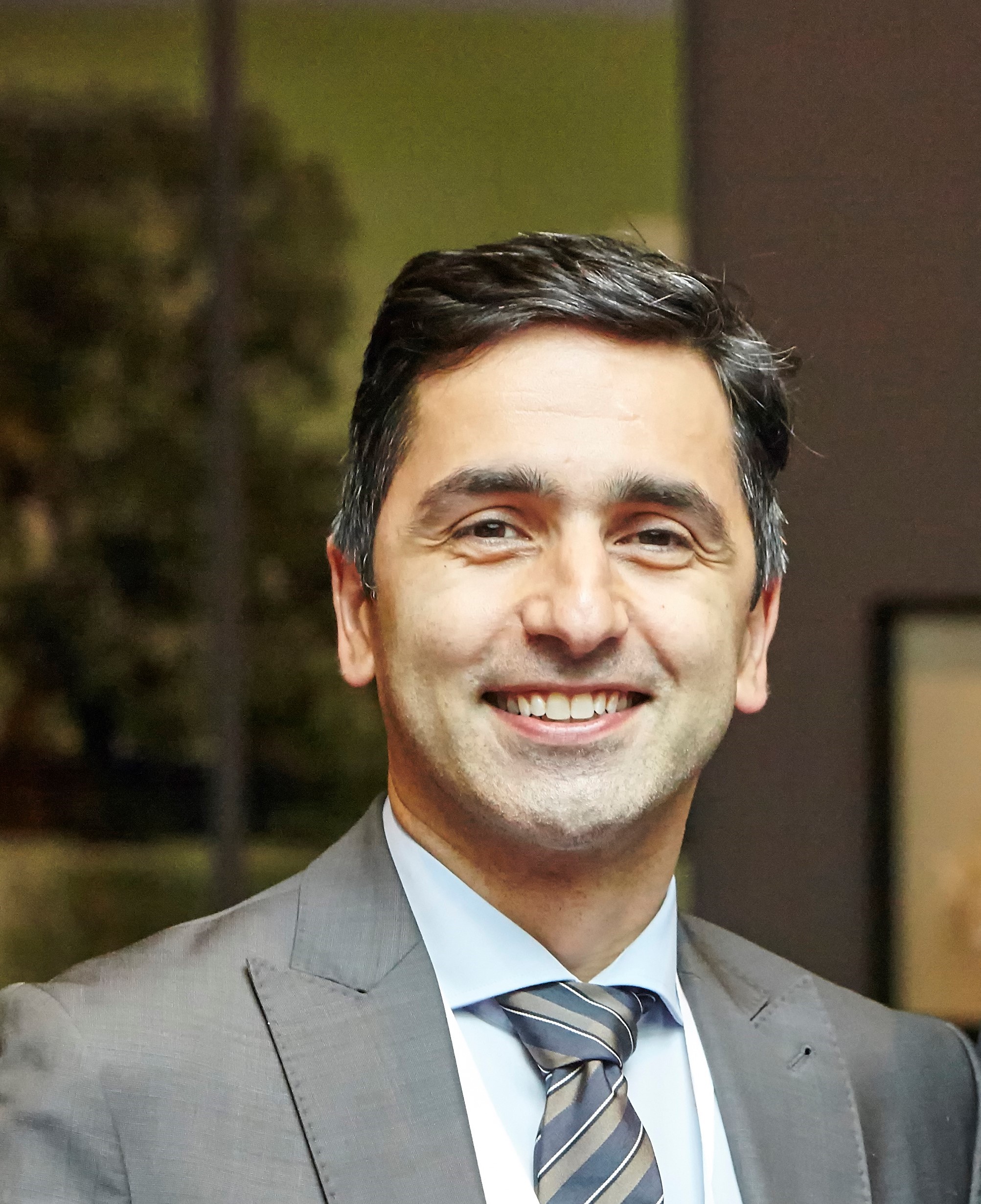 315.1
315.1 |
Impact of circadian rhythm and daytime variation on outcome after heart transplantation Payam Akhyari, Germany |
| 13:10 - 13:50 | SOTA: Gender Identity in Pediatric Transplant |
 316.1
316.1 |
Psychologist Camilla W. Nonterah, United States |
 316.2
316.2 |
Pediatrician Brittany J Allen, United States |
 316.3
316.3 |
Ethics Aviva Goldberg, Canada |
| 13:50 - 15:00 | Plenary Session: IPTA Business Meetings and Awards |

|
IPTA Business Meeting Lars Pape, Germany |

|
IPTA Section and IPTA 2025 Congress Awards distribution Lars Pape, Germany |
|
Pioneer in Transplantation introduction Deirdre Kelly, United Kingdom |

|
Pioneer in Transplantation Jean de Ville de Goyet, Italy |
| 15:30 - 16:30 | Workshop: Breaking walls: Rethinking pediatric transplant prioritization through global policy insights |
 325.1
325.1 |
Pediatric renal transplant allocation policies and barriers to pediatric prioritization worldwide Thozama V Siyotula, South Africa |
| 325.2 |
Pediatric liver transplant allocation policies and barriers to pediatric prioritization worldwide Irini Batsis, United States |
| 325.3 |
Pediatric heart transplant allocation policies and barriers to pediatric prioritization worldwide Anne I Dipchand, Canada |
 325.4
325.4 |
Deceased Donation: Expanding Programs with Pediatric Advocacy - Discussant Stephen D Marks, United Kingdom |
| Priya Pais, India |

|
Priya Walabh, South Africa |
| Anne I Dipchand, Canada |
| 15:30 - 16:30 | Oral Abstract: Important recipient considerations in pediatric kidney |
| 326.1 |
The impact of revisions to the KDPI for pediatric kidney transplant candidates in the US and utilization of KDPI<35 kidneys in the contemporary era Elizabeth M Sonnenberg, United States |
| 326.2 |
Breaking the Weight Boundaries: : Exceptional Kidney Transplant Outcomes in Children <12 kg and <10 kg. Center Experience Alanoud Alshami, Saudi Arabia |
| 326.3 |
A vignette survey on the acceptance of a kidney offer for pediatric kidney transplantation Leonie Greipel, Germany |
| 326.5 |
Kidney function and isolated kidney transplant outcomes in primary hyperoxaluria type 1 treated with long-term lumasiran Michael JG Somers, United States |
| 326.6 (202.5 in Journal) |
Single vs. en bloc kidney transplantation from donors ≤5 years of age in the United States: An analysis of the scientific registry of transplant recipients (SRTR) from 1987 to 2023 Reza Saidi, United States |
| 15:30 - 16:30 | Oral Abstract: All about donors - education, assessment and management |
| 327.1 |
Hypothermic machine perfusion in pediatric liver transplantation: two italian transplant centers experience Riccardo Cirelli, Italy |
| 327.3 |
Comparative Study of Preservation Techniques in Experimental Intestinal Transplantation: Static Cold Storage, Normothermic Perfusion, and Hypothermic Oxygenated Perfusion Maria Velayos, Spain |
 327.4
327.4 |
Organs, health and kindness: Three foundational pillars of high-impact school-based organ donation education programs in Canada Peggy John, Canada |
 327.4a (413.1 in journal)
327.4a (413.1 in journal) |
The Social Media for International Pediatric Transplantation Education and Research (SMARTER) Initiative for Training Transplant Fellows Rupesh Raina, United States |
 327.5
327.5 |
Top-down proteomics as a high-sensitivity tool to assess donor quality in kidney transplantation Satish N. Nadig, United States |
| 16:35 - 17:35 | Workshop: IPTA-ISHLT: Sometimes a thoracic organ is not enough - multi-organ transplantation |
| 330.1 |
The international landscape of combined paediatric thoracic and abdominal transplantation Anne I Dipchand, Canada |
 330.2
330.2 |
Heart-Liver transplantation in children with complex congenital heart disease Sharon Chen, United States |
 330.3
330.3 |
Lung-Liver and Lung-Kidney transplantation in children: indications, challenges and outcomes Nicolaus Schwerk, Germany |
 330.4
330.4 |
Renal considerations and assessing need for kidney transplant for thoracic transplant candidates Lars Pape, Germany |
|
Panel Discussion Discussion Period, Germany |
| 16:35 - 17:35 | Workshop: Long-term outcome after kidney transplantation |
 331.1
331.1 |
Life Years Lost in Children with Kidney Failure Siah Kim, Australia |
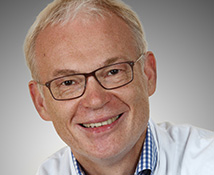 331.2
331.2 |
Growth after kidney transplantation (Supported by ESPN) Dieter Haffner, Germany |
| 331.3 |
RCT SOPHOCLES Trial (surrogate marker for long-term outcome) Anette Melk, Germany |
 331.4
331.4 |
Safety and efficacy of steering of immunosuppression based on BKPyV-specific T cells in case of BK Polyomavirus (BKPyV) DNAemia after kidney transplantation Thurid Ahlenstiel-Grunow, Germany |
| 16:35 - 17:35 | Workshop: Impact of social media: From likes to life-saving medicine in solid organ transplantation |
 332.1
332.1 |
The impact of social media on solid organ transplantation Rupesh Raina, United States |
 332.2
332.2 |
Patient perspective on building a patient-centered culture Berit Hullmann, Germany |
 332.3
332.3 |
Caregiver Burden in Pediatric Kidney Transplantation Brianna L Borsheim, United States |
 332.4
332.4 |
Practical tools and strategies for patient-centered care Jun Oh, Germany |
|
Panel Discussion Discussion Period, Germany |
| 07:00 - 08:00 | Morning Session: WIT Session |
| 400.1 |
Let’s Chat: Professional Opportunities and Choices Sandy Feng, United States |
| 07:00 - 07:50 | Oral Abstract: Kidney transplantation |
 401.2
401.2 |
Risk assessment of delayed graft function in pediatric kidney transplantation – A CERTAIN research network analysis Burkhard Toenshoff, Germany |
 401.3
401.3 |
Safety profile of antiviral prophylaxis for cytomegalovirus in pediatric kidney transplant patients: a systematic review Ni Nyoman Berlian Aryadevi, Indonesia |
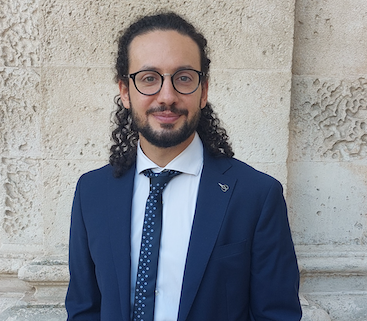 401.4
401.4 |
BK polyomavirus infection in pediatric renal transplant recipients - a 10 year single center experience Marco Cugliari, Italy |
| 07:00 - 07:50 | Oral Abstract: Liver transplantation - expanding the donor pool |
| 402.2 |
The impact of prioritizing pediatric recipients on a national scale: Battling waitlist morbidity and encouraging the diversification of liver transplant indications Isabel González-Barba Neira, Spain |
 402.3
402.3 |
ABO incompatible deceased donor liver transplants in infants (age <1 Year): a single-center experience Srinath Chinnakotla, United States |
| 402.5 |
Daratumumab as a rescue therapy for antibody-mediated rejection in super-urgent ABO- incompatible pediatric liver transplantation Alessandra Rancan, France |
| 08:00 - 09:00 | Workshop: Progress in infectious disease diagnosis, management, and mitigation in the immunocompromised host |
| 405.1 |
Burden and prevention of invasive fungal infection in pediatric solid organ transplant Sanya J Thomas, United States |
| 405.2 |
Reconsidering CNS disease in the donor, are newer diagnostics allowing further risk stratification? Arnaud G. L'huillier, Switzerland |
| 08:00 - 09:00 | Workshop: IPTA-ESOT: Innovation in transplantation |
 406.2
406.2 |
New indications for transplantation: complex transplantation Jelena Stojanovic, United Kingdom |
| 08:00 - 09:00 | Workshop: To Transplant or not to Transplant, that is the Question: Considering the Ethics of Re- transplantation after nonadherence |
 407.1
407.1 |
Session introduction and information about polling system Tom Blydt-Hansen, Canada |
| 407.2 |
Psychosocial factors impacting nonadherence and preventive strategies Debra Lefkowitz, United States |
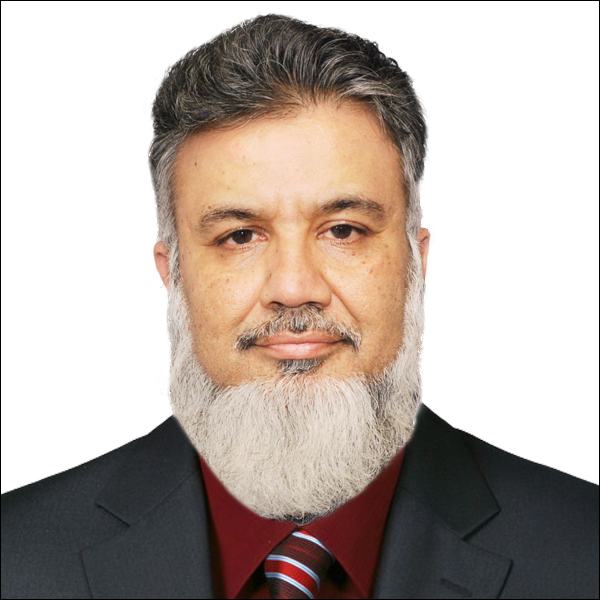 407.3
407.3 |
Ethical considerations of retransplantation in child with prior nonadherence Ali Asghar A Lanewala, Pakistan |
| 407.4 |
The clinician’s perspective: Moderated interactive discussion with audience participation Katheryn Gambetta, United States |
| 08:00 - 09:00 | Workshop: Multiorgan considerations in metabolic disorders |
 408.1
408.1 |
Metabolic diseases that commonly need multiorgan transplant Michael O Stormon, Australia |
| 408.2 |
Peri-transplant considerations for metabolic patients receiving multiorgan transplants Ane M. Andres, Spain |
| 408.3 |
The multidisciplinary approach to caring for metabolic patients requiring multiorgan transplant Jemma Mears, United Kingdom |
| 09:15 - 10:45 | Oral Abstract: Monitoring after pediatric kidney transplant |
| 410.5 |
Identifying high-risk hearts after pediatric kidney transplantation: linking diastolic dysfunction to myocardial fibrosis Tim A. Ubenauf, Germany |
 410.6
410.6 |
Impact of HLA-DQα05 Heterodimer Mismatch on De Novo Donor-Specific Antibody Formation in Pediatric Kidney Transplantation Vaka K Sigurjonsdottir, United States |
 410.7
410.7 |
Thrombotic and Hemorrhagic Events After Pediatric Kidney Transplantation: A Single-Center Assessment of Anticoagulation Protocol Julien Hogan, France |
| 410.8 |
Risk factors for loss of varicella immunity after pediatric kidney transplantation Helen Pizzo, United States |
| 09:15 - 10:45 | Oral Abstract: Complications of pediatric liver transplantation |
| 411.2 |
HLA molecular mismatch as a predictor of rejection and donor-specific antibodies in pediatric liver transplantation Maria Julia Minetto, Argentina |
 411.3
411.3 |
Oral application of low-dosage prednisone is efficient in reversing allograft fibrosis during long-term follow-up Yuan Liu, People's Republic of China |
| 411.4 |
Flow measurement in pediatric liver transplantation: a pilot study Ane M. Andres, Spain |
| 411.5 |
Safety and efficacy of PTA and stent placement for portal vein stenosis after pediatric liver transplantation; findings from the PORTAL registry Lydia Sieben, Netherlands |
| 411.6 |
Age matching improves graft survival in adolescent liver transplantation Amanda R Jensen, United States |
| 411.7 |
Liver Transplantation for Acute Liver Failure: Auxiliary or Non-Auxiliary Transplantation? Lin Wei, People's Republic of China |
 411.8
411.8 |
2D-Shear Wave Elastography of Pediatric Liver Transplants Benas Prusinskas, Lithuania |
| 411.9 |
Long-term outcomes of percutaneous stent angioplasty for vein stenosis after pediatric liver transplantation Min Kyoung Kim, Korea |
 411.10 (411.1 in Journal)
411.10 (411.1 in Journal) |
Poor one-year outcomes of hepatic artery thrombosis after pediatric liver transplantation: Results from an international, multicenter, real-world registry Weihao Li, Netherlands |
| 09:15 - 10:45 | Oral Abstract: Insights in immunology and immunosuppression |
| 412.7 |
Evaluating Feasibility and Clinical Relevance of Pharmacogenomic Testing using Whole Genome Sequencing in Pediatric Kidney Transplantation Sandra Amaral, United States |
| 412.8 |
Pharmacogenetics in pediatric kidney transplant: Leveraging CYP3A5-guided therapy for improved patient outcomes Sierra Scodellaro, Canada |
 412.9
412.9 |
CD4 counts exhibit poor recovery in pediatric transplant patients with single ventricle physiology Brian Madden, United States |
| 09:15 - 10:45 | Oral Abstract: Transplant variety - Education, adherence, and multi-organ transplantation |
| 413.2 |
Global Perspectives on Nonadherence and Re-Transplantation in Pediatric Solid Organ Transplant Recipients: an IPTA Ethics Committee Analysis Katheryn Gambetta, United States |
| 413.3 |
The Global Pediatric Transplant Centers Map (GPTCM): A collaborative advocacy initiative Stefany Hernandez Benabe, United States |
| 413.5 |
Combined Liver-Kidney Transplant in Children Clare J Lindner, United States |
 413.6
413.6 |
Medication adherence and outcomes after pediatric kidney transplantation: Results from the telemedicine-based, multimodal aftercare program KTx360° Lars Pape, Germany |
 413.7
413.7 |
Combined islet and liver transplantation in children Carmen Capito, France |
| 413.8 |
Follow-up of combined liver-kidney transplant pediatric recipients – single center experience Ana Petrović, Serbia |
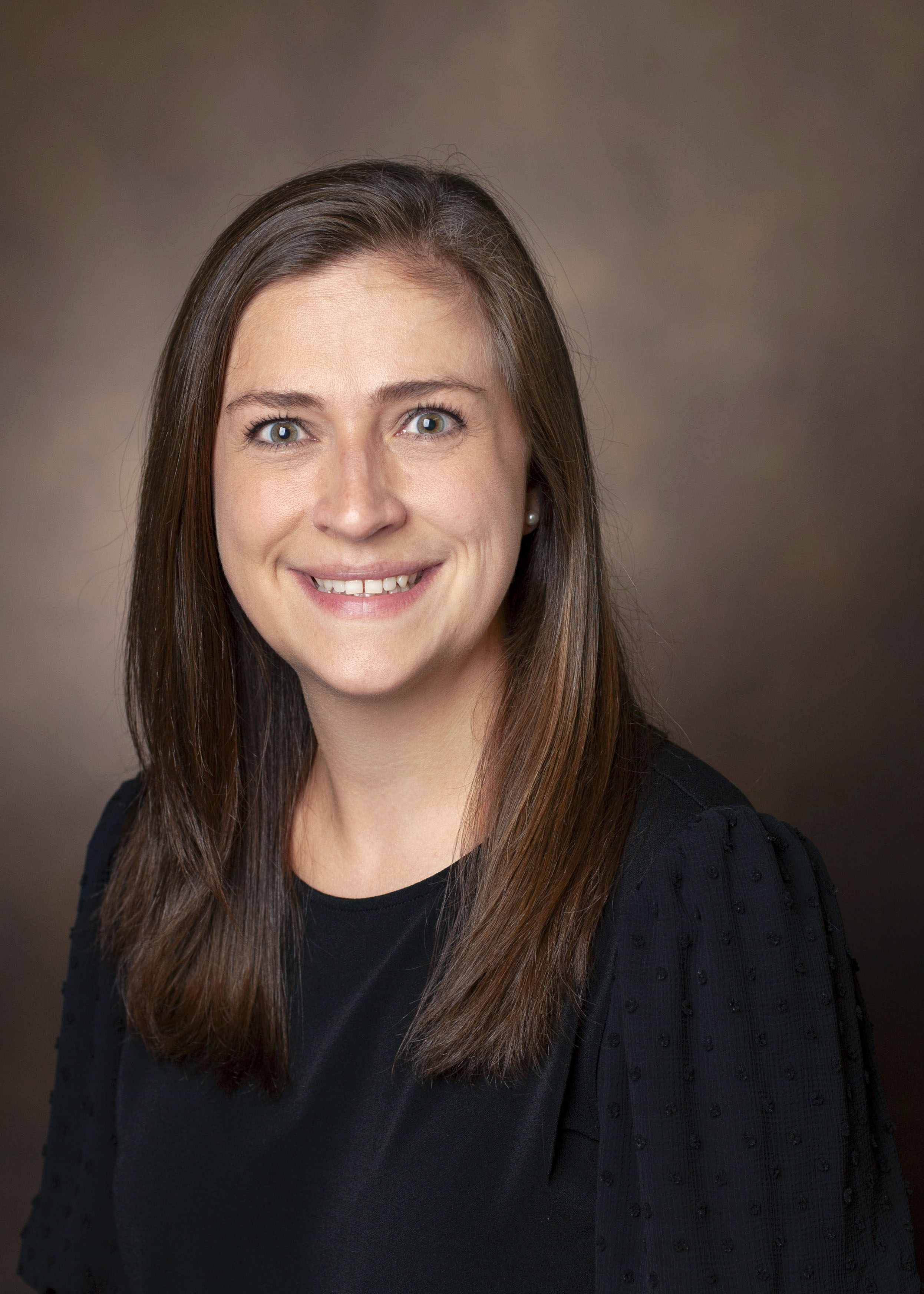 413.9
413.9 |
Surveying the landscape of pediatric transplant training: does access need to be expanded? Rebecca Mercedes, United States |
| 10:50 - 12:30 | Plenary Session: Xenotransplant – A Role in pediatric transplantation |
 415.1
415.1 |
How Xeno might be feasible in children with naïve immune systems Simon Urschel, Canada |
 415.3
415.3 |
Ethics in xenotransplant Eckhard Nagel, Germany |